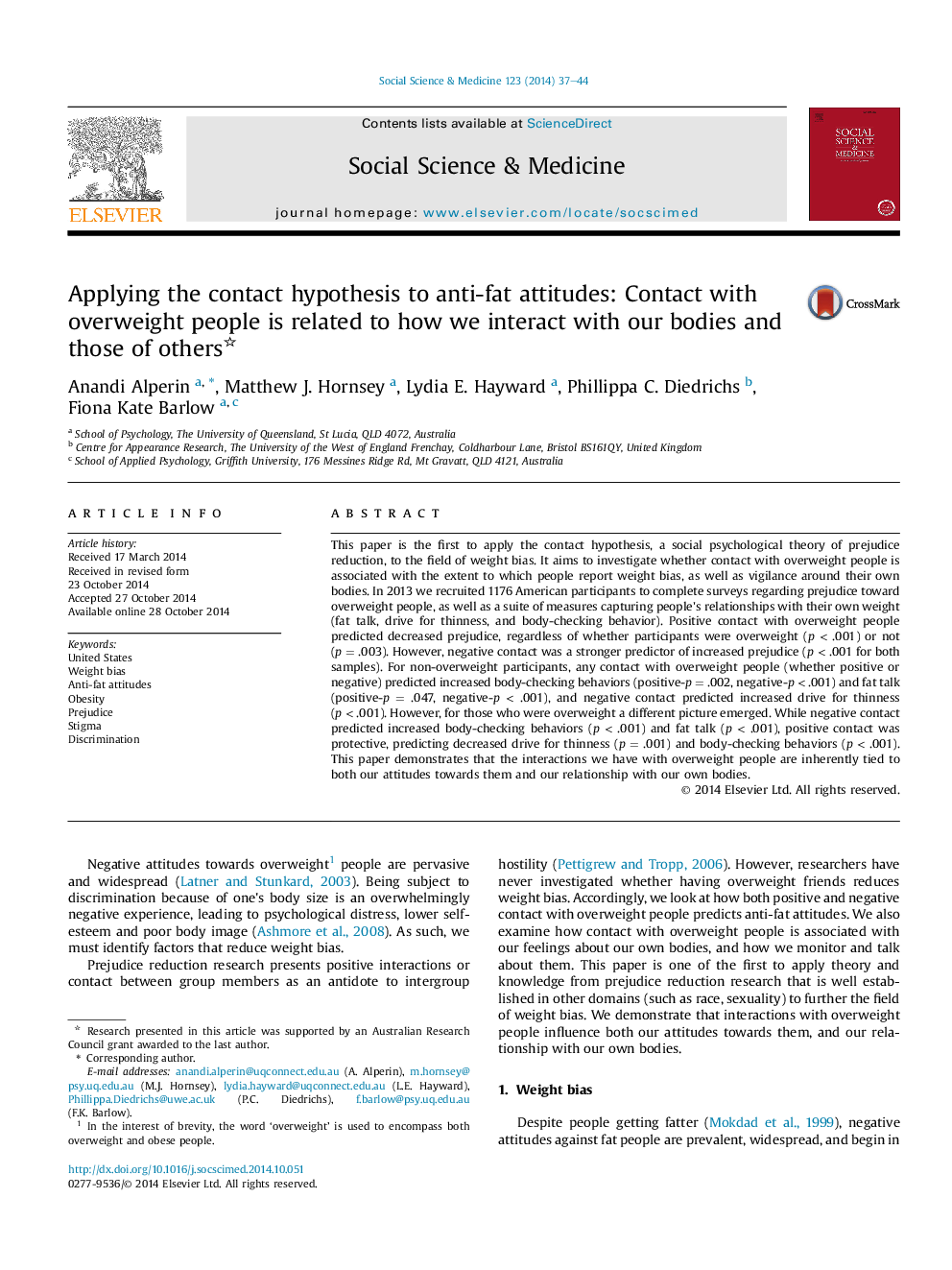| Article ID | Journal | Published Year | Pages | File Type |
|---|---|---|---|---|
| 7333983 | Social Science & Medicine | 2014 | 8 Pages |
Abstract
This paper is the first to apply the contact hypothesis, a social psychological theory of prejudice reduction, to the field of weight bias. It aims to investigate whether contact with overweight people is associated with the extent to which people report weight bias, as well as vigilance around their own bodies. In 2013 we recruited 1176 American participants to complete surveys regarding prejudice toward overweight people, as well as a suite of measures capturing people's relationships with their own weight (fat talk, drive for thinness, and body-checking behavior). Positive contact with overweight people predicted decreased prejudice, regardless of whether participants were overweight (p < .001) or not (p = .003). However, negative contact was a stronger predictor of increased prejudice (p < .001 for both samples). For non-overweight participants, any contact with overweight people (whether positive or negative) predicted increased body-checking behaviors (positive-p = .002, negative-p < .001) and fat talk (positive-p = .047, negative-p < .001), and negative contact predicted increased drive for thinness (p < .001). However, for those who were overweight a different picture emerged. While negative contact predicted increased body-checking behaviors (p < .001) and fat talk (p < .001), positive contact was protective, predicting decreased drive for thinness (p = .001) and body-checking behaviors (p < .001). This paper demonstrates that the interactions we have with overweight people are inherently tied to both our attitudes towards them and our relationship with our own bodies.
Related Topics
Health Sciences
Medicine and Dentistry
Public Health and Health Policy
Authors
Anandi Alperin, Matthew J. Hornsey, Lydia E. Hayward, Phillippa C. Diedrichs, Fiona Kate Barlow,
